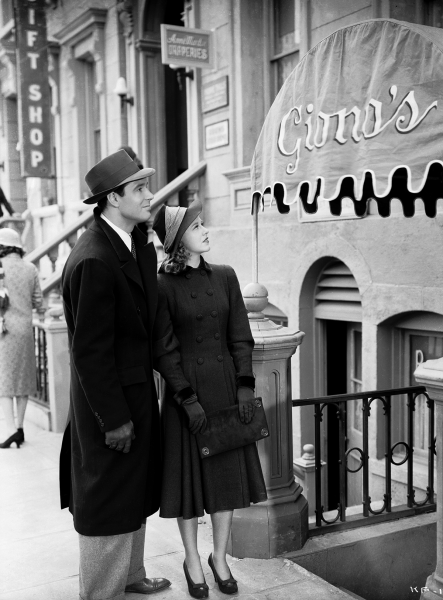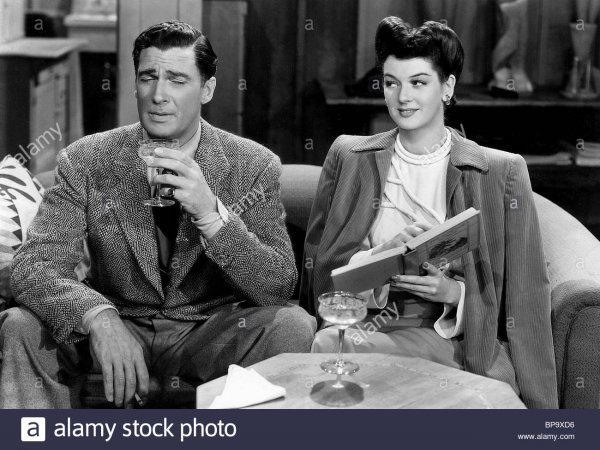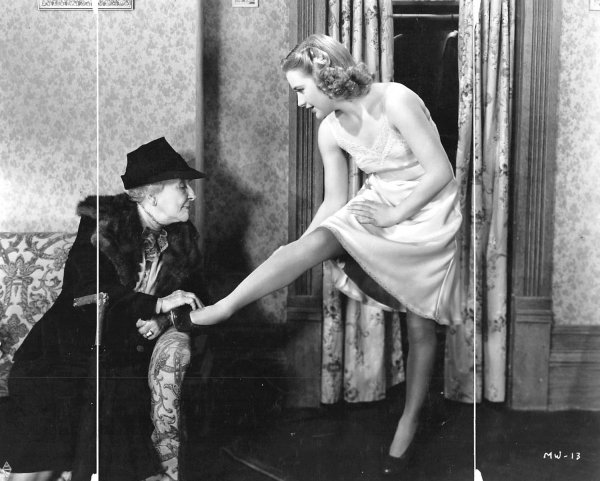- Messages
- 17,483
- Location
- New York City
A little whiles back, it was Impact (1949) with Brian Donlevy, Ella Raines, and Charles Coburn. I thought I had seen it years ago, and it wasn't until Ella makes her appearance as a spunky auto mechanic that I remembered it. Equal parts deliciously rotten unfaithful wife, mixed with courtroom drama, and a swell dose of redemptive small town living to keep you entertained. Catch it for Donlevy not playing a tough guy.
Then, The Racket (1951) with Robert Mitchum, Robert Ryan, and Lizabeth Scott. A Hollywood attack on the pervasive spread of organized crime. Mitchum is tough police captain McQuigg after Ryan who is the barely under control psycho gangster Nick Scanlon. Scott is around to play a night club canary who get drawn in to the conflict. Ray Collins is the gangland puppet running for judge. William Tallman, who would work with Collins on Perry Mason, is an honest, dedicated patrolman. We liked it.
Finally, Mogambo (1953) with Clark Gable, Ava Gardner, and, billed well below the title, Grace Kelly. Directed by John Ford, who allegedly never saw Red Dust, the inspiration for this remake. Cool location scenes, hefty dollops of travelogue wildlife, and jarring studio sets.
I enjoyed "Impact" a lot (my comments on it here: #26810). Ella Raines should have been a bigger star IMHO.
Just recorded, but haven't watched "The Racket" yet - more excited to see it, now, after your comments.
Love "Mogambo," more each time I see it. If you've ever seen a love triangle IRL, you recognize the pain and jealousy so well captured here.





